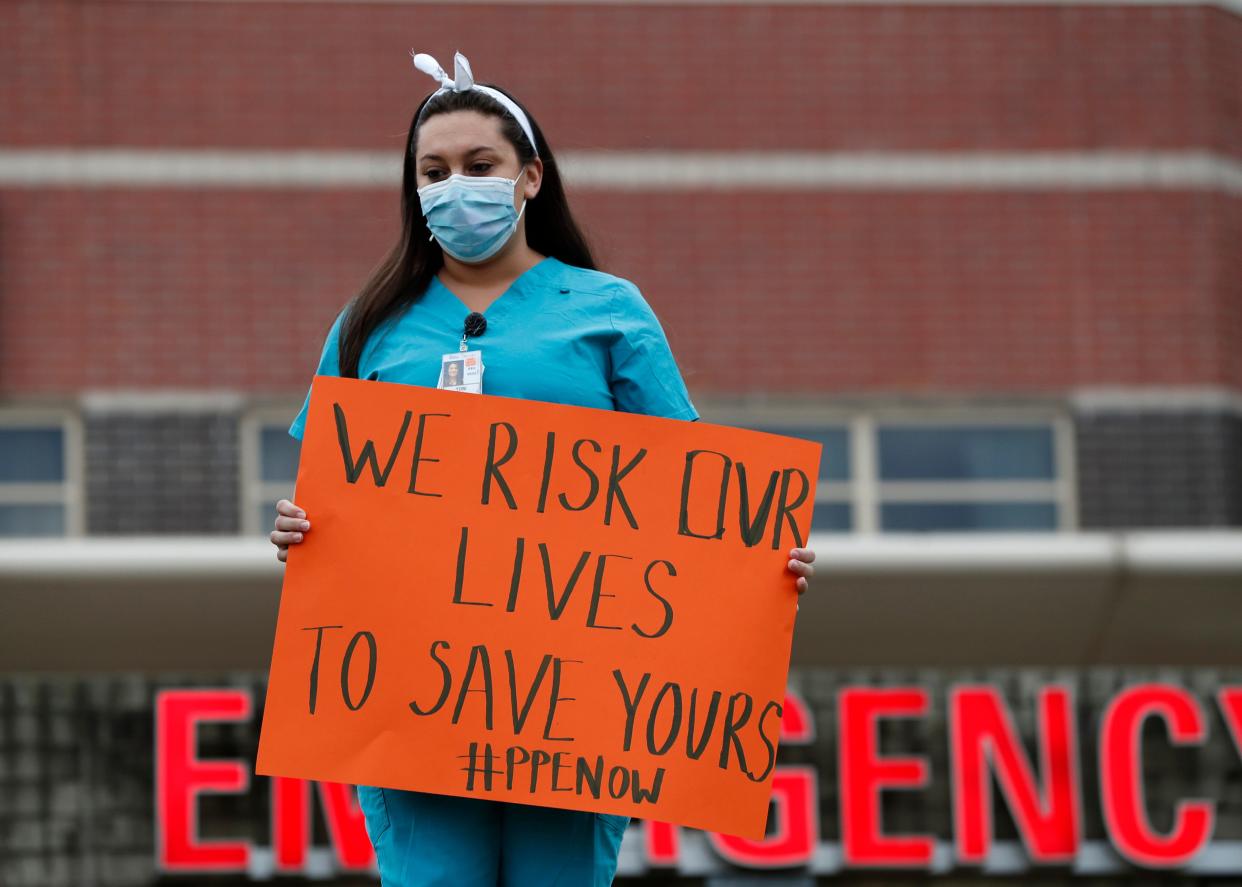A Push For Medical Workers To Get The Same Benefits As Other First Responders

The minute Caitlin, 30, an intensive care unit nurse in Brooklyn, wakes up, anxiety sets in.
“You feel like you’re taking your chances and you’re risking things and working underneath conditions where you’re just very fearful,” she told HuffPost over the phone, asking that we not use her last name because she doesn’t want her hospital to know she’s spoken to the press. “You’re doing what you signed up to do, but no one signed up for COVID-19.”
A growing number of nurses and other medical personnel have contracted COVID-19, the respiratory disease caused by the novel coronavirus. Some have died. On Friday evening, New Yorkers received an emergency alert seeking health care workers “to support healthcare facilities in need,” presumably to supplant other workers. But those frontline workers and their families are not eligible for any special compensation beyond regular life insurance or other death benefits.
“Now you go into work and it’s like your life doesn’t matter,” Caitlin said. “You want to save people’s lives and you want to take care of people the best that you can, but you’re also fearful for your own life and the people that you have at home.”
New York Police Department officers and firefighters, on the other hand, can receive full line-of-duty death benefits that provide their surviving spouse with a lifetime of their pension and health benefits as well as their children until they turn 26. However, emergency medical technicians (EMTs) are also first responders, but they do not receive line-of-duty benefits.
In a city once racked by crime and traumatized by the mass deaths of the Sept. 11, 2001, terrorist attacks, the disparity elucidates how the city has long prioritized threats and whom it considers the heroes. Yet as New York became the epicenter of a deadly global pandemic, those priorities look increasingly out of sync with the new reality.
Health care workers thrust onto the frontlines defending public...



